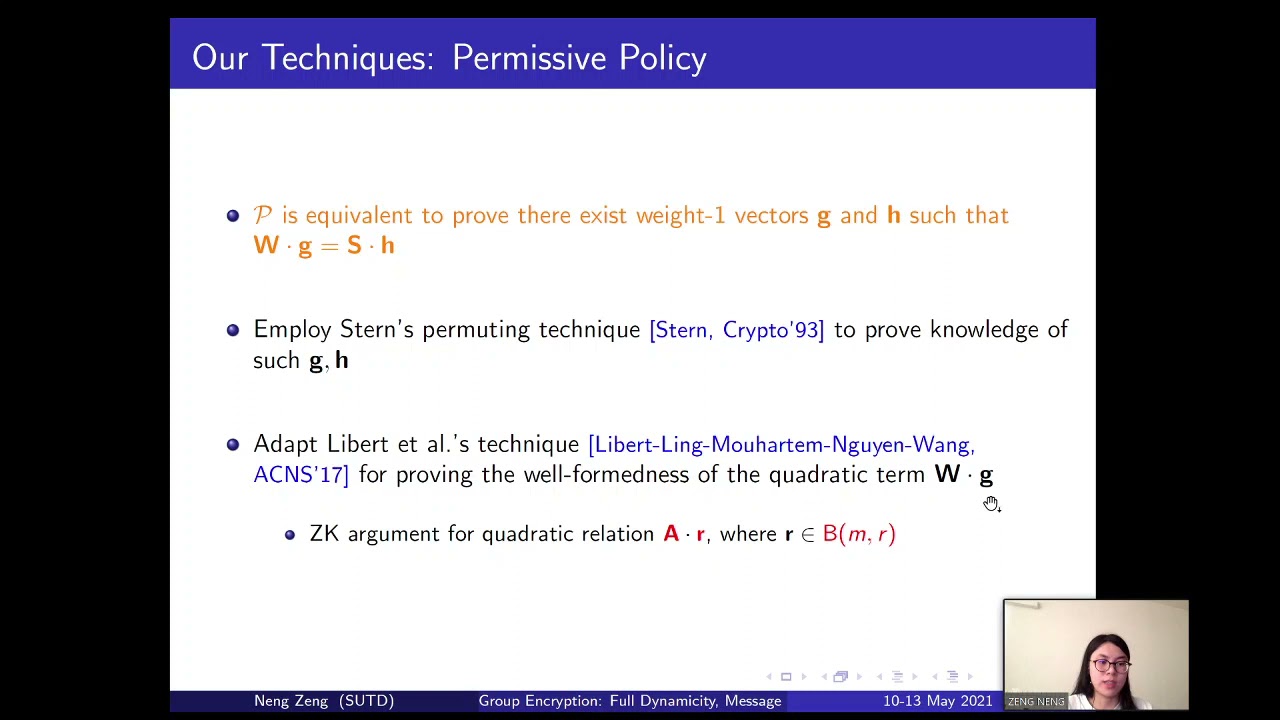Welcome to the resource topic for 2021/226
Title:
Group Encryption: Full Dynamicity, Message Filtering and Code-Based Instantiation
Authors: Khoa Nguyen, Reihaneh Safavi-Naini, Willy Susilo, Huaxiong Wang, Yanhong Xu, Neng Zeng
Abstract:Group encryption (GE), introduced by Kiayias, Tsiounis and Yung (Asiacrypt’07), is the encryption analogue of group signatures. It allows to send verifiably encrypted messages satisfying certain requirements to certified members of a group, while keeping the anonymity of the receivers. Similar to the tracing mechanism in group signatures, the receiver of any ciphertext can be identified by an opening authority - should the needs arise. The primitive of GE is motivated by a number of interesting privacy-preserving applications, including the filtering of encrypted emails sent to certified members of an organization. This paper aims to improve the state-of-affairs of GE systems. Our first contribution is the formalization of fully dynamic group encryption (FDGE) - a GE system simultaneously supporting dynamic user enrolments and user revocations. The latter functionality for GE has not been considered so far. As a second contribution, we realize the message filtering feature for GE based on a list of t-bit keywords and 2 commonly used policies: permissive'' - accept the message if it contains at least one of the keywords as a substring; prohibitive’’ - accept the message if all of its t-bit substrings are at Hamming distance at least d from all keywords, for d \geq 1. This feature so far has not been substantially addressed in existing instantiations of GE based on DCR, DDH, pairing-based and lattice-based assumptions. Our third contribution is the first instantiation of GE under code-based assumptions. The scheme is more efficient than the lattice-based construction of Libert et al. (Asiacrypt’16) - which, prior to our work, is the only known instantiation of GE under post-quantum assumptions. Our scheme supports the 2 suggested policies for message filtering, and in the random oracle model, it satisfies the stringent security notions for FDGE that we put forward.
ePrint: https://eprint.iacr.org/2021/226
Talk: https://www.youtube.com/watch?v=gQoRNbzBZgY
Slides: https://iacr.org/submit/files/slides/2021/pkc/pkc2021/245/slides.pdf
See all topics related to this paper.
Feel free to post resources that are related to this paper below.
Example resources include: implementations, explanation materials, talks, slides, links to previous discussions on other websites.
For more information, see the rules for Resource Topics .
